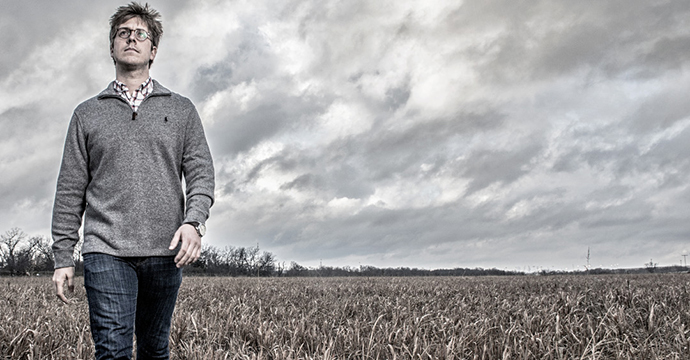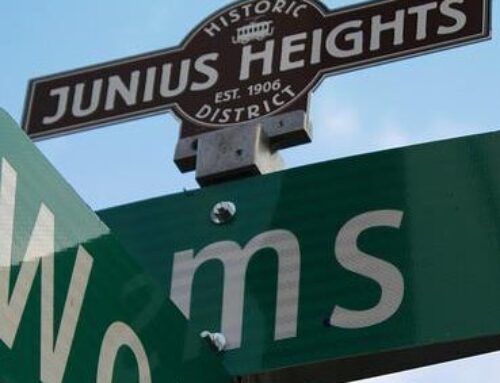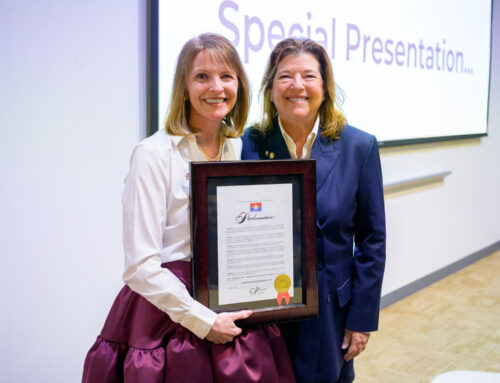East Dallas native Matthew George first flashed across our radar in 2006 when he became the first Woodrow Wilson High School student to qualify for the National Shakespeare Competition in New York City. He went on to make East Dallas proud with his success at Yale University, where the play he wrote as a senior, “Cow Play,” won honors at the Kennedy Center American College Theater Festival in Washington, D.C. Post graduation, now living in Chicago, George has switched from theater to film. He is in the final stages of completing his debut film, “Muckland,” which he wrote and co-produced with a friend from Yale.
Can you describe the film?
The film is about a struggling senior in college who is facing a lot of doubts in his life and has a little bit of a breakdown. He comes home to his small, rural town where he grew up to take some time to decide what to do. He kind of reconnects with this town where he grew up, specifically with this farm that his dad used to own before he passed away. In the process of working the dairy farm, he discovers a little more about his dad. He finds some journals his dad wrote when he was in college, and he kind of struggles connecting with his own family — his mom and younger brother — and he meets some new friends on the farm. He ultimately has to decide if he’s going to stay home or if he’s going to go back to school.
On the website, you call it a ‘modern’ coming-of-age story. What makes this different from the coming-of-age stories we’re familiar with?
One thing I think that’s slightly different is that it takes place right before graduation, as opposed to after graduation. It’s about staring into that gulf of knowing that it’s going to be kind of a mess. The other thing is that it’s in a rural setting, instead of down in the dumps in the city trying to make it.
Can you tell me a little bit about your process creating the movie?
My senior year in college — I graduated in 2011 from Yale — I wrote a play called “Cow Play.” I got runner-up to the National Student Playwriting Award. It’s about a pair of brothers who grow up on a dairy farm and struggle when one of them leaves and falls in love and comes back and wrestles with who’s going to take over the farm. So I had some success with that and then we did the New York Fringe Festival that summer.
Then I moved to Chicago and was thinking about playwriting. I stayed in touch with the director of “Cow Play,” Charlie Polinger, who directed the movie “Muckland.” We talked about doing a short film inspired by “Cow Play.” I wanted to do something new, so I wrote a script that was about 40 pages. We thought, we can make a short film or a long film, and figured if we were going to go to a dairy farm we might as well make a long film — how hard could it be? The answer is much harder.
How did you research it?
I had gotten to know the family that owns my father’s old dairy farm. That’s kind of where everything started. One summer I had an internship that fell through, so I had about a month where I didn’t know what to do. I was a junior in college, and I wanted to reconnect with my roots a little bit because my father grew up on a farm in western New York, which is a part of him I’d never seen before. I was put in touch with the people who own the dairy farm, and they were incredibly nice. They knew my grandparents before they passed away.
They basically housed me for two or three weeks and let me work on their farm, which is basically me just holding buckets of cow formula. One time they taught me to drive a tractor. One time somebody left me in the middle of a field to repair a fence with a truck, but it was a stick shift so I didn’t know how to get back. I had to Google, ‘How to drive a stick shift truck,’ and nearly killed myself.
What did you learn about modern farming?
The people who own the farms, the Torrey Farms, they’re people who care about farming so much and the lifestyle. Coming from Yale, I was so used to all these conversations about sustainability and farm-to-table and all that stuff, but these farmers are just trying to make what they can. They’re not going to put stuff in their soil that’s going to hurt the soil, because then they can’t do anything. These are people who read complicated books and have really intellectual discussions; they just don’t feel the need to publish it in newspapers, you know? They’re very humble, hard-working people. I wanted that to be a subtext of the film.
What do you hope people will walk away with after watching the film?
I hope it’s a big hug, kind of, like, ‘Life can be tough.’
To learn more, go to mucklandthemovie.com






